|
Concert review by Eric Sandberg — The Fab Four Live at the Rose in Pasadena, CA 4/26/2019 Like the Dodgers at Chavez Ravine, The Fab Four are playing a four game home stand which began Thursday evening at the Canyon in Santa Clarita, followed by the Rose in Pasadena last night, with the final two games...er...shows at The Saban Theater tonight and the Canyon in Agoura Hills Sunday. If last night's show at the Rose is any indication, you must buy, steal or Lyft yourself into one of these remaining shows if you live in the greater Los Angeles area. The Fab Four have never sounded, or looked, better. After two support acts [the first played while I was eating a Holy Aoli burger at the Dog Haus on Hill Street, and the second as I sat on the Rose's patio checking on the aforementioned Dodgers] and a hilarious introduction by Ed Sullivan impersonator/stand up comedian George Trullinger, The Fab Four promptly took the stage at 9:00 PM, dressed in their accurate Shea Stadium finery, and played a sparkling set of favorites from the first half of The Beatles' career, including "Love Me Do," "A Hard Days Night," "Eight Days A Week," Twist And Shout," "Yesterday" and several others. George "Ed Sullivan" Trullinger warms up the crowd for a rilly big shoo. As the band, consisting of Joe Bologna as Ringo, 'Liverpeuwel' native Gavin Pring as George, ageless founding member Ardy Sarraf as Paul and newcomer Adam Hastings as John, played these timeless, perfectly crafted pop songs...well...perfectly. I kind of wished they could stay in those gray suits all evening. The addition of Newcastle upon Tyne native Hastings has delivered a noticeable upgrade to the Fab Four's close harmonies. With eyes closed, or even just squinting a bit, it was impossible to tell them from the real thing. Just squint a little and pretend you can't hear them over the screaming Newcastle's most famous exports include ships, Sting, Brian Johnson and now you can add Adam Hastings to the list. Trullinger's Sullivan again entertained the capacity crowd while the band slipped into their colorful 1967 uniforms for the second set. How much, I wonder, does Gavin Pring rue the fact that George was the only Beatle to wear a hat the size of a schooner during that era? They played the opening and closing pairs of songs from Sgt Peppers sandwiched by "Taxman" from Revolver. The closing set was signaled by the appearance of Adam Hastings in a white suit jacket and long hair. He did some quite funny bits involving a list he had in his pocket before broaching the serious subject of hunger. Pre-orders are now being taken for a special "Imagine No Hunger" California license plate with proceeds to benefit the California Association of Food Banks. https://www.imagineca.com/index.html
With that, Hastings sat down at the piano to play John Lennon's iconic solo number, joined by the rest of the band on the second verse, which allowed the rapt audience to imagine what could have been. Despite my preference for The Beatles' earlier songs, I would not have traded this show's encore for anything. The band were joined onstage by Eric Clapton emulator extraordinaire Doug Couture, who gave the impression he had just leapt out of a cab on Green Street as he bounded onto the stage to strap on a Les Paul. His performance on "While My Guitar Gently Weeps" not only reminded everyone how great Eric Clapton is, it also put an exclamation point on how thrilling it can be too see musicians of this caliber giving you everything they have in a live venue. Go.
9 Comments
Eric Sandberg speaks with Ardy Sarraf, The Fab Four's own Paul McCartney, about their upcoming live performance of Abbey Road to honor the albums 50th anniversary Ardy Sarraf as Paul McCartney Photo courtesy of Manny Dominguez Photography I've never been overly fond of tribute bands. I'm not against nostalgia but I'd rather listen to someone sing his or her own songs, or at least spirited versions of classic songs by a variety of artists, than see a band fall all over themselves to look and sound like one established act. I especially don't get tribute acts for bands that are still around. What is the point of a Cheap Trick tribute band when the real Cheap Trick is more than likely going to play your town four times this year? My general disdain for tribute acts has one notable exception — Beatles tributes. Among the thousands of rock and pop acts to emerge since Little Richard began abusing his piano in public, The Beatles are a law unto themselves and an integral part of worldwide culture. When Gustavo Dudamel conducts the LA Phil no one calls it a Mozart Tribute act. The Beatles are on that level. There are many, many Beatles tributes operating throughout the world. Notable ones include Rain, The Fab Faux, England's Bootleg Beatles and, of course, Southern California's The Fab Four who, in my opinion, are the best of them all. They do it right. For example: Ardy Sarraf, who has been portraying Paul McCartney since the show's inception in 1997, is normally a right-handed player. We've all tried to write, throw, or maybe play an instrument with our opposite hand at one time or another — it ain't easy. That's dedication. It doesn't stop there. There are the costumes, the accents, the banter, the staging, the Ed Sullivan impersonator; along with the breathtaking skill and attention to detail brought to the musical arrangements and performances. Over the years The Fab Four have progressed from a Tuesday open-mic night lark, to a Disneyland attraction, a Vegas headliner and, ultimately, the globe-trotting, ticket selling phenomenon they are today. Over the years there have been several changes to The Fab Four cast, the most recent being the semi-retirement of founder and President Ron McNeil from performing as John Lennon. Ron has been ably replaced by veteran John Lennon impersonator [and dead ringer] Adam Hastings who most recently held that position with Bootleg Beatles. This leaves Ardy Sarraf as the only constant cast member since the show's inception, currently abetted by Joe Bologna as Ringo and Liverpool native Gavin Pring as George Harrison, along with Hastings. Ardy Sarraf and Gavin Pring "It's different..."Sarraf tells me on the phone from Baton Rouge where the Fabs are preparing for a gig. "...but because we've all substituted for each other over the years it's not that big of a deal. We're all used to seeing different guys on stage with us but, you've seen pictures of Adam [It's uncanny], he looks great on stage and, to be honest with you, the blend that Adam and I have is like the Everly Brothers. Everyone knows John and Paul were going for that Everly Brothers vocal sound with the contrast between Paul's soft, smooth voice and John's gravelly voice. With Ron, we never quite had that sound because our voices were too much alike. Ron doesn't have that nasally type of tonality. So vocally, we sound much better. Instrumentally, it's hard to touch Ron, especially with the keyboard stuff, but I will say that Adam has been working very hard, with us and on his own, which is commendable. People have been saying for years 'If only the John from Bootleg Beatles would join the Fab Four — that would be the ultimate.' Now it's happened and it's a big boost for us as a whole. It gives Ron time off to be with the family. Adam is excited and we're excited to have him." Adam Hastings Though The Fab Four are continually playing gigs all over the world, they always come back home to Southern California and one of their most important traditions is to play a huge, special show at the Pacific Amphitheater every summer during the Orange County Fair. I recall seeing them perform a tribute to Beatles movies a few years ago, featuring appropriately costumed sets of tunes from A Hard Day's Night, Help! and Let It Be. For this summer's extravaganza the theme is obvious. 2019 is the 50th anniversary of The Beatles' brilliant swan song Abbey Road. For me, Abbey Road is the album that set the standard for the FM radio revolution that was to come. Without the sonically superior Abbey Road you never get to The Dark Side of The Moon or Steely Dan's Aja. It was certainly an album that was never meant to be performed on stage. As I peruse the back cover of my Abbey Road LP a number of challenges spring to mind in terms of performing all the tracks live — not the least of which include how to keep the patrons from heading to the bathroom during "Maxwell's Silver Hammer" and "Octopus's Garden" [thank goodness the can't miss "Oh Darling" sits between them]. "It's funny..." Sarraf muses, "...because Ringo didn't even play it ["Octopus's Garden"] a month ago when I saw him. That was one of the songs he did not play, which was...interesting. But it's a fun song, I like that song. We'll be able to pull it off." On performing "Because": "That is a great vocal harmony. It's not that tricky because we are competent musicians and singers — we each know what part we are going to sing. We've already started dissecting this stuff and putting them in our set here and there. On "Maxwell's Silver Hammer": "We're trying to work out who is going to play what. Joe is probably going to play the synthesizer part because the song has no drums. Ron is also going to be playing on stage with us for some of the songs because you can't recreate the whole album with just four guys. There's places that need tambourine, there's acoustic and electric [guitars], extra percussion...so we'll have Ron and Joe, when he's not playing drums, on keyboards, percussion or whatever else is going on. I've played "Maxwell's Silver Hammer before and it's a bit tricky, especially on bass when you're also singing. I might be performing it at the piano this time just to change things up. I think that and "She's So Heavy" are going to be the most challenging ones for vocal and sonic reasons. Luckily we have Mike [Amador, the band's original George Harrison and current manager] mixing us because he knows the stuff, he's played the stuff, so he knows what to listen for. By now you know what it's all about...the devil is in the details, still." On Playing the big side two medley: "The medley...well that's...it's not like it's sacred or anything but everybody knows it. For us it isn't any different than doing the Sgt. Pepper's album which we did a couple of years ago. That was a bitch to do that stuff live. "Lovely Rita on the bass, left handed, while singing — that was a little bit of a chore but we pulled that one off. We're trying to work out where I will switch to guitar [for the famed three-way solo-trading section]. Visually it would look cool if the three 'Beatles' were up there trading the solos. I've never done it like that, I've always just played the bass and let the other two handle the solos. We'll have to see how it works out. Gavin, Joe and I have never done "You Never Give Me Your Money" all the way through. "Sun King," "Polythene Pam," "She Came In Through the Bathroom Window" — to me, that's the tricky stuff right there. Even when there is no singing going on, all that instrumental stuff, solos and counter solos. It's all about relearning and rehashing it. It's fun stuff for sure." How will they handle "Her Majesty?": "I don't want to give it away." Finally, I asked Sarraf, as the last man standing, how much longer he'll be doing the Macca Mambo with the Fabs. Is it starting to get old for him? "No but I'm starting to get old though! It's funny because Ron and I started out about the same time, playing in other bands. I played with different Beatles bands around the world, I went to Japan when I was twenty. It's just like any career, especially with all the traveling. You've got to know when to hang up the boots. On stage you've got to look good and sound good. I've got a few more years yet, before I hang up those boots. The Fab Four return to Southern California next week for four shows before heading out for a run of shows up and down the eastern seaboard. You can check for dates near you at the link below. http://thefabfour.com/#tour Album Review By Eric Sandberg In 2019, the era of fourteen writers and producers on one song, there is no better sound to hear on a record than the buzzing of a single coil guitar pickup fed through an analog spring reverb — a sound that signals what you are about to hear could just be perfect in its imperfection. In order to achieve such perfect imperfection it seems one must travel to the northern Sahara and Niger to seek out Mdou Moctar a Taureg (not the Volkswagen) musician who is the first to play traditional Berber music with an electric guitar — a lefty Fender Stratocaster, no less. Moctar was raised in a strict religious family where music was not permitted. He made his first guitar out of a plank with wire and nails. After years of practicing in secret Moctar earned his living playing at weddings. He was discovered by the western world via cell phone recordings of his performances collected by tourists. Eventually some genius went out of his way to deliver an electric guitar to the musician and the results are, frankly, stunning. Ilana (The Creator) is Mdou Moctar's first album recorded with a full band, including a rhythm guitarist, bass and drums. The band sounds like they have been playing together for decades — a desert Grateful Dead but infinitely more intense. I have always been fascinated by the music of the Middle East and North Africa, particularly Morocco, but Moctar uses the traditional Berber music as a launch pad for some of the trippiest psychedelic guitar excursions and non-traditional fleet-fingered soloing ever committed to tape. Each track on this nearly perfect album takes you on a different journey through an unfamiliar world. It is mesmerizing and it reveals more of itself with each listen — and you will be compelled to listen, again and again. The centerpiece of the album is the epic seven and a half minute "Tarhatazed" [I can find no translation]. This song has it all: a massive groove, a great riff and an extended guitar solo that would make Eddie Van Halen weep. "Tarhatazed" This song is followed by the upbeat and hopeful sounding [I have no idea what he's singing about] "Wiwasharnine" which can be seen and heard below as Moctar performed the song live on KEXP. The live performance confirms his assertion that he is not familiar with the techniques of western rock guitarists and developed his chops on his own. His finger positioning on his fretting and picking hands is unlike any traditional rock guitarist. "Wiwasharnine" live on KEXP
I cannot recommend this album strongly enough. It's not just a record, it's an evolving experience. Interview by Eric Sandberg At fifty-eight years young, Stewart O'Nan has seen seventeen of his works of fiction published along with two non-fiction books, one of which is Faithful [with Stephen King] a best-selling bleachers-eye-view of the first championship season for the Boston Red Sox since Babe Ruth was traded. All of this since he, with the full support of his saintly wife, Trudy, abandoned his career as an Aerospace engineer to earn his MFA, ultimately publishing his first collection of short stories In The Walled City [Drew Heinz Literary Prize] in 1993. His first novel Snow Angels was adapted as a film and at least two other novels are in pre-production with names like Tom Hanks and Emily Watson being bandied about. Early in his career, Granta named him one of America's best young novelists. Stewart O'Nan and I both grew up in the Pittsburgh neighborhood of Squirrel Hill. We went to the same schools [he lived right across the street from Linden Elementary where we first met in Kindergarten], though we didn't routinely hang out [and start a band] together until high school. We reconnected after my father brought me a copy of Snow Angels he stumbled across in the Faulkner book store in Pirates Alley, New Orleans. Since then, I've been just one in a legion of avid readers of O'Nan's works all over the world. With his new novel Henry, Himself set to publish on April 9, I reached out to Stewart to ask him if he would allow me to exploit our acquaintance by granting me an interview. He foolishly agreed. If you're a fan, I guarantee that you'll not read a Stewart O'Nan interview quite like this one anywhere else. Eric Sandberg: When Scott Turow writes a new book it's going to be in a courtroom, if it's Kathy Reichs, bones are sure to figure heavily. You are a literary writer with a healthy curiosity and we fans never know what your next book is going to be about: A family tragedy, a crime spree, World War II, fire and plague, a restaurant about to close — I could go on...and on. Yet with all this variety in your work, you've managed to write three books about the same family. What keeps bringing you back to the Maxwells? Stewart O'Nan: I guess it's that feeling that I haven't told the whole story. That goes way back to being a short story writer — the amount of compression that goes on. In order to get that compression, you leave a lot out. When I was writing Wish You Were Here I thought the book was going to be all about Emily Maxwell but, as it turned out, I thought the other characters were just as interesting so I followed them as well. I really didn't get to tell her whole story, so when I started writing Emily Alone I needed to give her some room. And then, just thinking about Henry, he's dead and there's two other books. So we have hearsay about him from the other characters but we don't really know him. I started thinking 'Who exactly was Henry?' I'm always attracted to a life story. Emily Alone is a life story the same way Henry, Himself is a life story. I figured let's give Henry his room and go back and see what I could find. Eric: I recently read an essay by the Argentinian novelist César Aira in the Paris Review where he discussed at great length his theories on the "Law of Diminishing Returns" in analyzing the source of his writer's block. I will admit that much of it was over my head, but one section particularly caught my interest as he discussed the necessity of creating all the "circumstantial details" required to flesh out a novel. "Once they are written down," he states, "their necessity becomes apparent", but while inventing them, they seem "childish" and "silly" and fill him with an "invincible despondency" (laughter). I thought of you, [SO: Thank you.] whose best works are tapestries of circumstantial details that create a whole greater than their parts and, based on Aira's experience, I wonder how you've made it this far without topping yourself. SO: John Gardner said, in The Art of Fiction, a lot of what's in a novel isn't there because the novelist wants it there, it's because the novelist needs it there. It's like that Laurie Anderson line "You know, I think we should put some mountains here. Otherwise, what are the characters going to fall off of?" You want to build a world that is your character's world and you want that world to challenge your character — to challenge everything that is dear to that character. But you've got to have that world there otherwise, what is to be lost? If Henry dying doesn't lose us that good world around him, if we don't see and feel that world, then we'll never feel the loss. We're not losing anything. There are a lot of stories I like to read, and I like to write, which involve character or character consciousness trying to save what is lost — trying to salvage a world that is gone. Older people, in their seventies and eighties, that's what they're trying to hang on to...or make sense of — both of those things at once. They're trying to hold on to both the good and the bad. But in order to have the good in the bad, you have to have that whole world with all the little stuff, like luggage, a dead deer on the roadside, everything. That's the fun of it. That's the discovery, finding the stuff that you didn't know was there — that you didn't know that you needed — that end up meaning a lot to the characters. Eric: It sounds like you're the opposite of César Aira, you revel in the circumstantial details. SO: For particular books I guess that makes sense. For other books maybe it doesn't mean that much. A book like A Prayer For the Dying weighs in at about one hundred and forty manuscript pages, there is a ton of stuff that is left out. It's all action. I was reading a book called Understanding Comics [by cartoonist Scott McCloud] the other day. It talks about the structure of comics and how, in different cultures, the movement from frame to frame differs. In some cases the next frame will take you to another scene and in others the next frames are different moments within the same scene. I think, in this book, I'm doing that a lot more than moving from scene to scene. I'm hanging on to the scene. I'm doing that close up stuff like in a French film. There are a lot of one person scenes — a lot of scenes with no dialogue. Eric: In Henry, Himself. Henry is fascinating in his dullness. He has the odd hobby, but the only thing that seems to inspire — and I hesitate to use the word - passion in him is the almost futile need to restore order no matter how mundane the thing that has gone slightly awry — not necessarily with his family, but with stopped up drains, bald patches in the grass and broken garbage disposals. SO: This goes back to the big question of who is Henry? We're the sum total of all the things we do — that we dream. Henry is very tamped down in a way. He's part of the "Greatest Generation". They're there to be steady, they're there to take care of things and make sure that things work. I think that their passion was in their work. Their wives were supposed to take care of the home and they were supposed to go out and have a career. By the time that we meet Henry his career is long passed. He can hearken back to it and think about it, but it's pretty much gone. There is also this lingering effect of his war time experience that keeps him steady and not too excitable about things because nothing is ever going to be as wild and chaotic and maddening as his war experience. When he comes back all he wants is for things to be quiet and peaceful. I knew your brother and your mother but your father was like Phyllis's husband Lars to me. I never saw him, never met him and if I ever asked about him, my guess is I didn't get a memorable answer. How much of your father have I finally met after reading this book? SO: Not that much, I think. It's a combination of my father and my grandfather, who plays much more into it, I think. That's the time frame. Also the job — my grandfather worked for Westinghouse. The house where the book takes place is based on the house they lived in on Grafton Street in Highland park. Eric: When we were lads I don't mind telling you now that I looked up to you quite a bit. Aside from you being several inches taller, you always seemed to be a bit ahead of the curve and you saw things differently than most people. You were the funniest person I knew. Walking to school with you was often a master class in observational humor. Sometimes it's hard to reconcile that Stew with the often harrowing tales written by the Stewart O'Nan I discovered much later in life. An acquaintance of mine, a singer-songwriter named Peter Himmelman, writes serious songs of great depth and passion which touch on the human condition, much like your books. But in person, he always has everyone in stitches. Do you have an explanation for this dichotomy, and are you still funny? SO: It's hard to say if you're funny or not... Eric: I suppose I should ask Mrs. O'Nan that question. SO: It's always up to the crowd. At the time we were growing up there was a great irreverence. We were seeing Monty Python on channel 13. This was fresh stuff when we were eleven or twelve years old. I think we were thirteen when when Saturday Night Live debuted. Richard Pryor and George Carlin were probably the funniest men in America. It was a very funny time — the freewheeling late sixties/early seventies, anything goes. You could poke fun at anything, and probably for good reason. The major institutions in the country had been debunked and seen as morally bankrupt, which is still true today. So I think it was just about getting into that spirit. We were watching f*cking Laugh In! My first major influence, if we were to throw out Tarzan, would be the Peanuts comic strips. It's still some of the best American writing I've ever read. It does everything. It has a huge range. It's about jokes but, in a weird way, it's deadly serious about these little kids and what they represent. At the beginning of my writing I think was more influenced by serious stuff but I was also influenced by Horror and Science Fiction. That's what I read mostly from my teen years up until my early twenties. If my earlier books are a bit more dire that's the influence of the Horror and maybe some of that morbid Science Fiction. Another big influence was the Horror comics I used to read at the Squirrel Hill Newsstand. Tales of the Unexpected, Creepy, Eerie and, God forbid, Vampirella. I liked that morbid, mordant sense of humor and the idea that 'you're going to get yours' — that weird sense of macabre poetic justice. Yeah, it's hard to be funny on the page, unless you're George Saunders, I guess. Eric: I've heard you speak at readings about your writing process - boxes and boxes of legal pads, yada, yada, and what you choose to write about seems to be sparked by your own curiosity — and how satisfying that curiosity can lead to a book. West of Sunset, for example: you were doing research for a book about Los Angeles and got caught up in a footnote about F. Scott Fitzgerald in Hollywood. Your curiosity about that led to a very different book. I recall visiting you at your apartment at Boston University and you played me cassette recordings you had made of late night street interviews you conducted with pimps, prostitutes and drug dealers in the Combat Zone. For someone who was studying Aerospace Engineering at the time, I wonder if that was the germ of the curiosity that led to your ultimate career choice? SO: It's that documentary curiosity, that wondering about how other people live beyond my own small scope. That's always been there, I think. It also goes back to just reading. Even though I was there to study Aerospace Engineering, I was still reading voraciously because I had a library card there so I would go into the stacks at BU's Mugar library and check out Camus and Flaubert — I was going through a big French phase at that time. Again, I'm not sure why. I had no big plans for being a writer but, whether it was comic books, Peanuts, Stephen King or Harlan Ellison, I was always a reader. At least that's always been my explanation for how it happened — how I went from being an Aerospace engineer to being a short story writer in my basement after work. I just love to read. Eric: I just finished a little light reading, a book called The Sentence Is Death by Anthony Horowitz. One of the red herrings in this murder mystery was that a noted literary writer was secretly the author of a series of trashy, sex-fueled million-selling fantasy novels [laughter]. Her agent defends her, stating "You know the market for literary fiction, Anthony, it's tiny, almost non-existent." Once again, I thought of you. SO: That's what they always tell us, but that's where the big fellas come out of. Everyone said Anne Tyler would sell three thousand books her whole career and now she's at the top of the Best Seller list. 'Alice Monroe, you're not going to make any money writing short stories...' Nobel Prize. If it's good it will sell. Eric: It's not a very well kept secret that you wrote a spy novel under a nom-de-plume [A Good Day To Die, James Coltrane]. It wasn't made into a movie with Matt Damon, or even Mark Wahlberg. Was it hard to resist making it just a tad too literary perhaps? SO: If I could have sold it as a literary novel I would have but I had too many books piled up at that point. I had three, if not, four books ready to go. I just wanted them off of my desk. That book is basically a twist on For Whom the Bell Tolls. I want to say that City of Secrets is also kind of, too. Here's that lone figure that is part of a revolution but doesn't know exactly where he stands. Having grown up in the sixties and seventies, and lived through all those weird hijackings and bombings, the SLA, Entebbe, Munich, all that stuff, you think about all the people who got caught up in that. For young people, with no direction it can happen very quickly. It's always a fascinating one for me. It's like Graham Greene: is this one of his entertainments or is this one of his deadly serious spiritual quest books? Or is it the two of them together? Robert Stone had that same problem. When I was writing City of Secrets I was thinking a lot about that. That apocalyptic strain in pop fiction versus serious fiction versus how it is in actual life.
It's like making movies. It's very stylized. I can see where that author doesn't want to go in that direction —paint the setting, move the characters around. It's not a very flexible business model, I guess. Eric: You seem to be doing OK. SO: For me it's always a challenge. What kind of book is this going to be? Is this going to be a 'square' book or is it going to be a funky, weird book? I like the funky, weird books where you pretend it's square but its actually funky and weird. It's a shell game that you play with the whole business. There's a Henry Rollins lyric "Soul in the mainstream is such a labeling dream." You have to appear to be doing one thing when you're actually doing another. It's tricky. A novel can be anything at all. The question is can you get an audience in the door, with the how? and what will they stand for? And at what point can you close the door behind them so that they can't escape? Something like The Speed Queen and A Prayer For the Dying, which are overtly weird, whereas something like Emily Alone and Henry, Himself appear to be pretty square but are, in fact, very odd. But will the reader sit still for it and, if so, what reader? That's always the question but, by the time you write 'em, it's too late. You do the best you can, you throw them out there and try to move on to whatever is next. That's always the hardest part — figuring out what's next. Eric: That segues perfectly to my final question: is there anything new that has peaked your interest that you're getting started on, and can you give us an oblique hint as to what it might be? SO: I got nuthin'. |
CategoriesAuthorsEric Sandberg: My true opinion on everything is that it's splunge. Archives
December 2022
Categories |
Proudly powered by Weebly
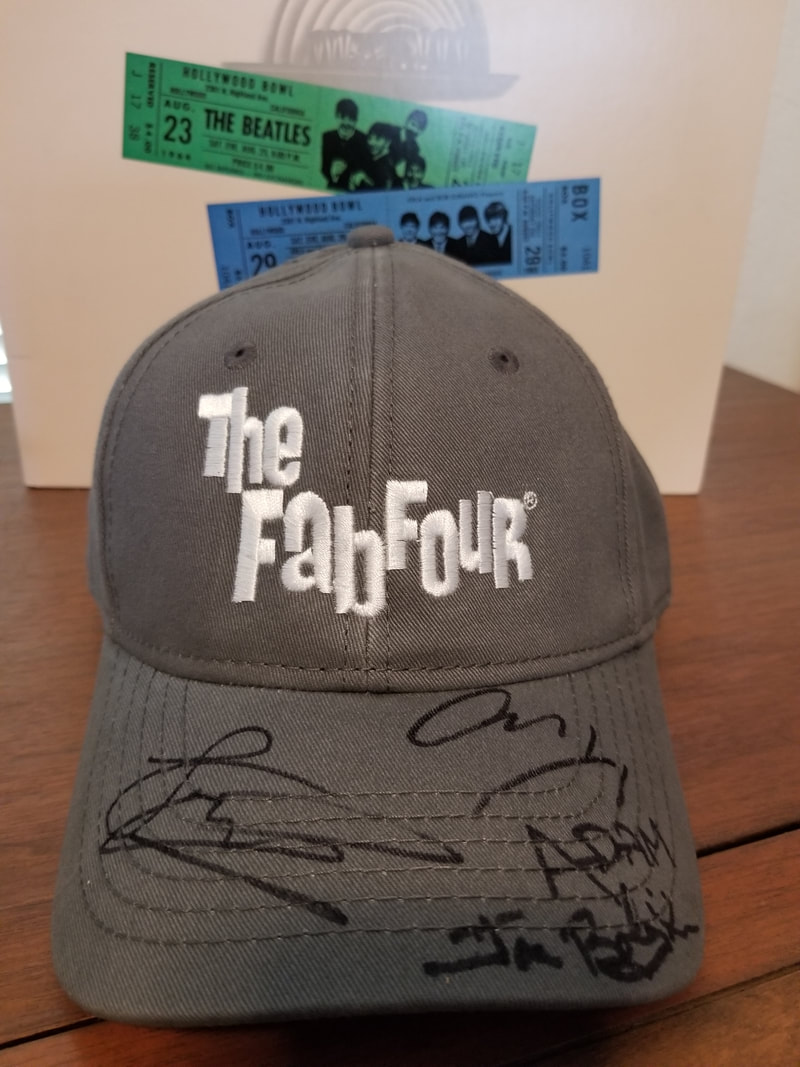
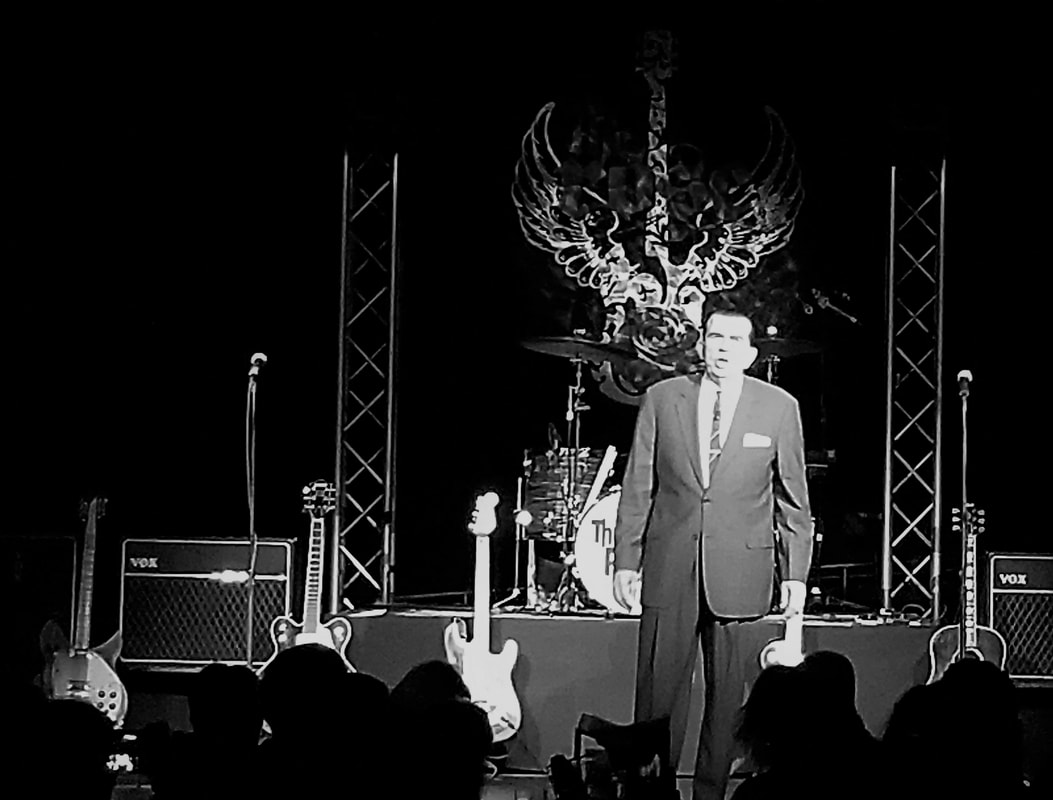
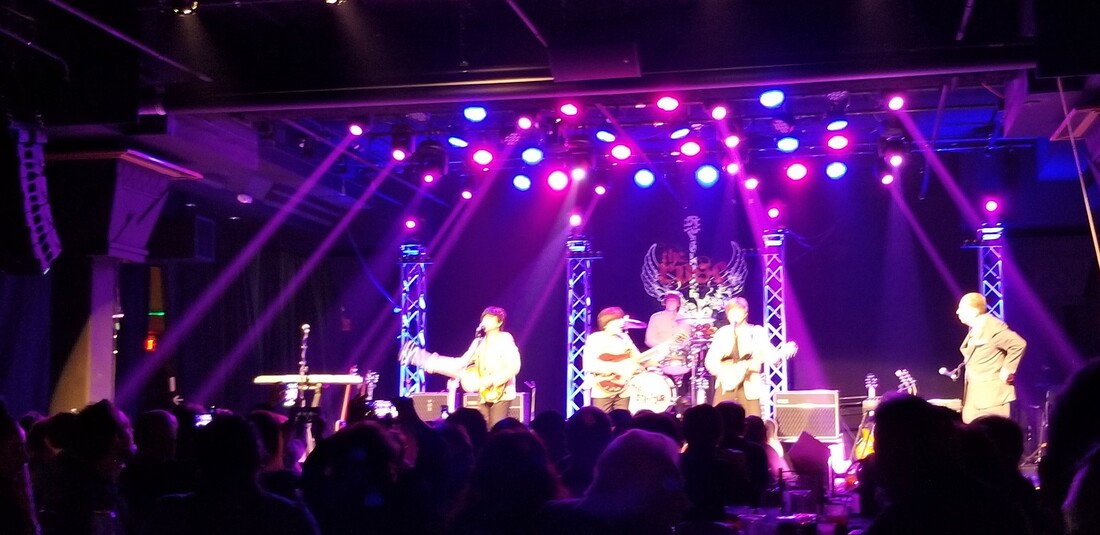
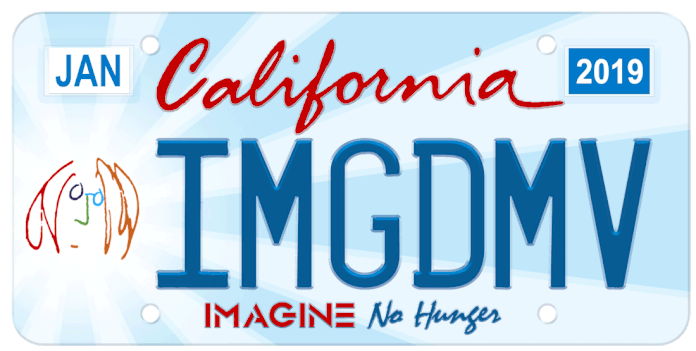
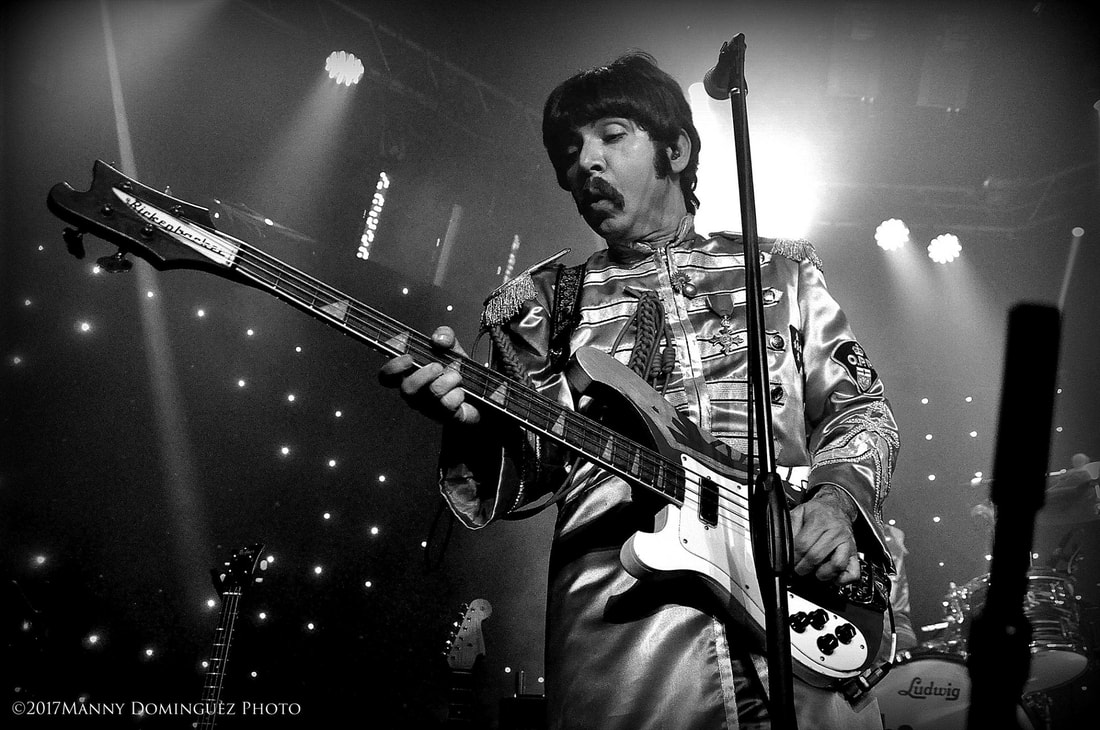
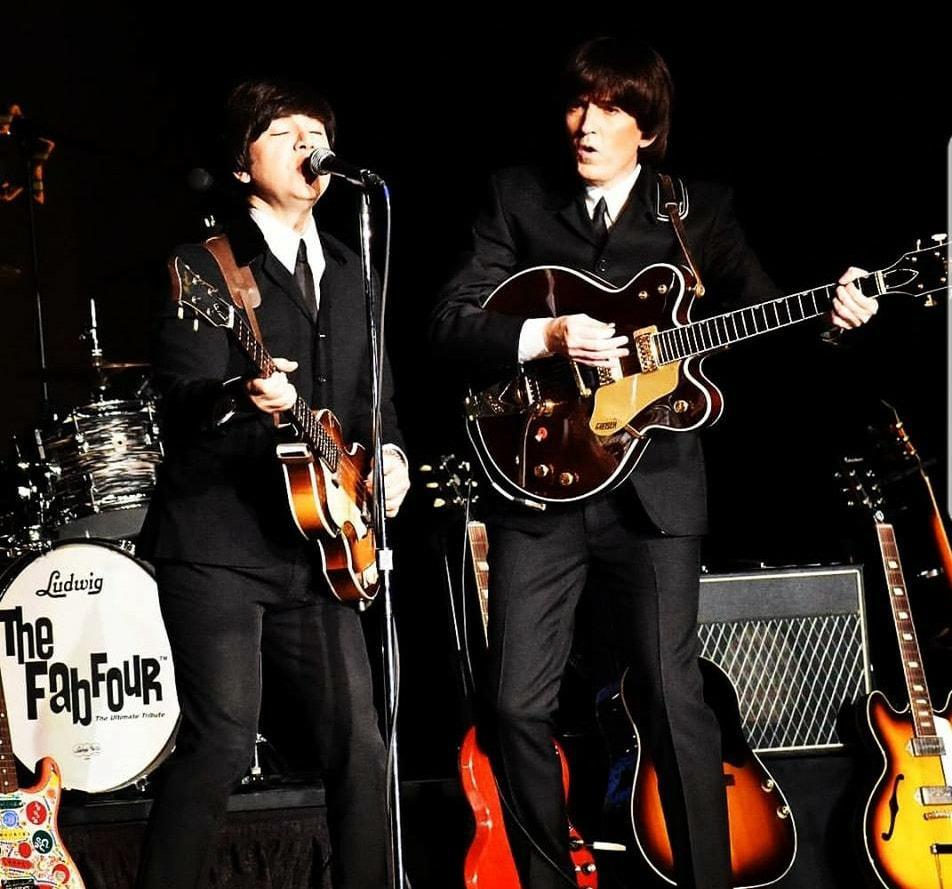

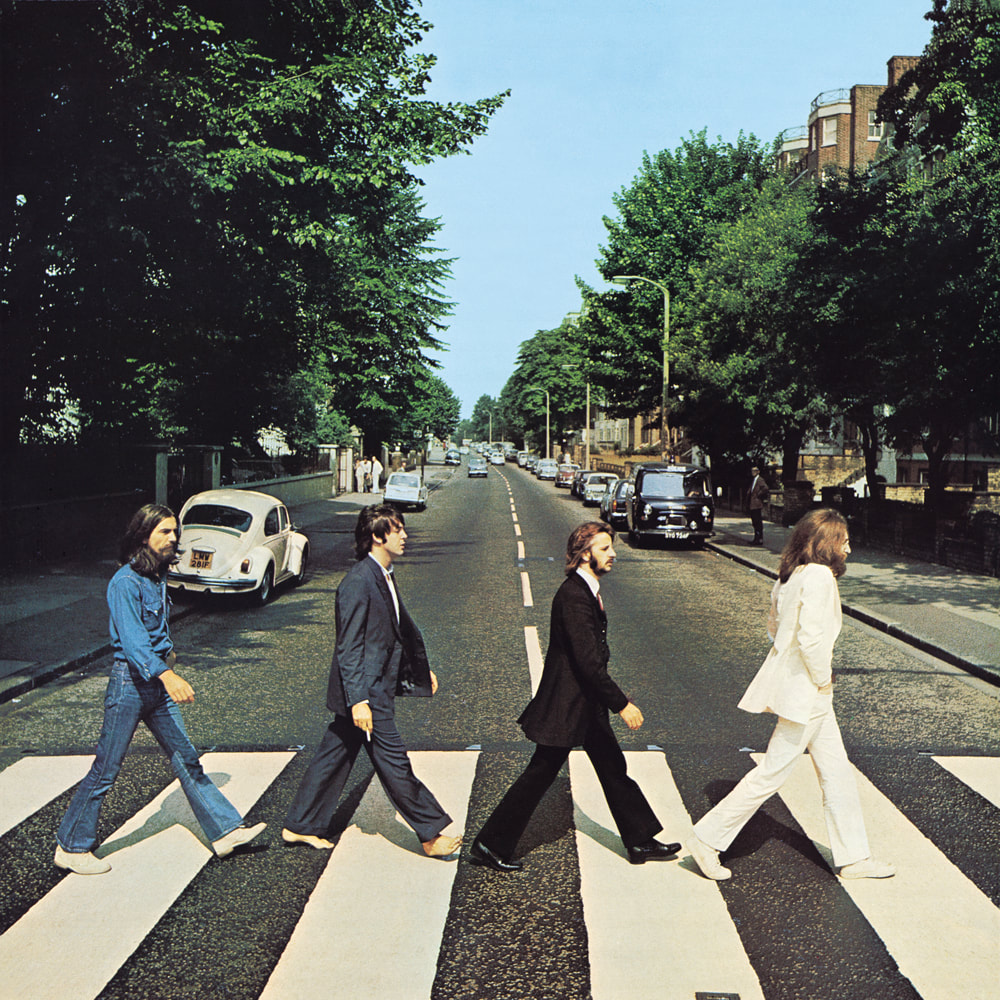
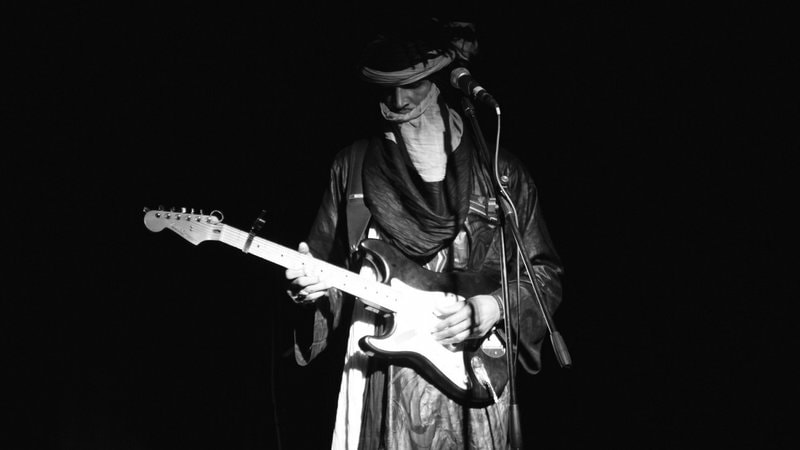
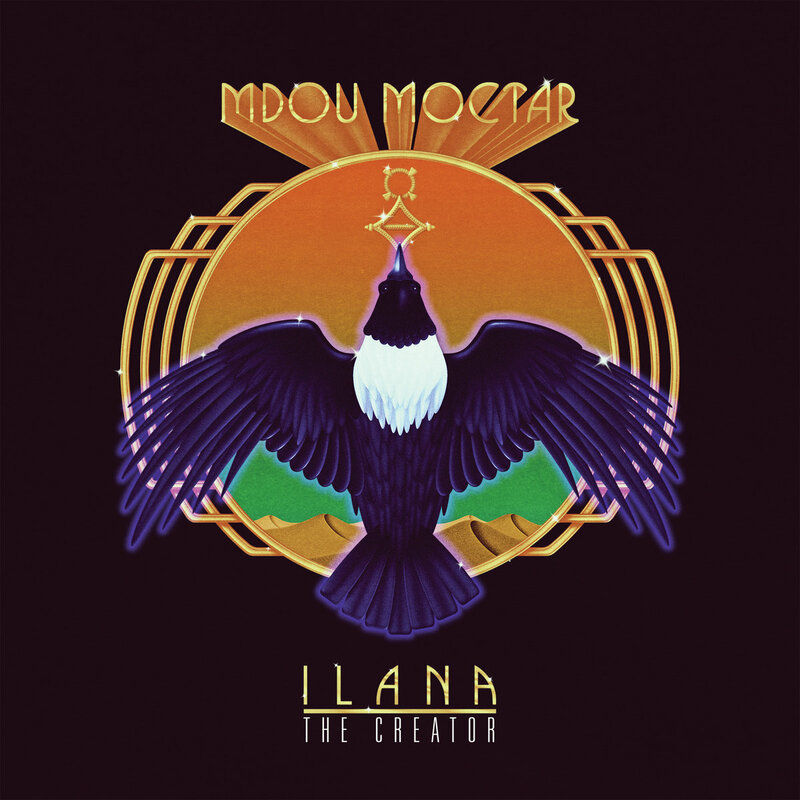
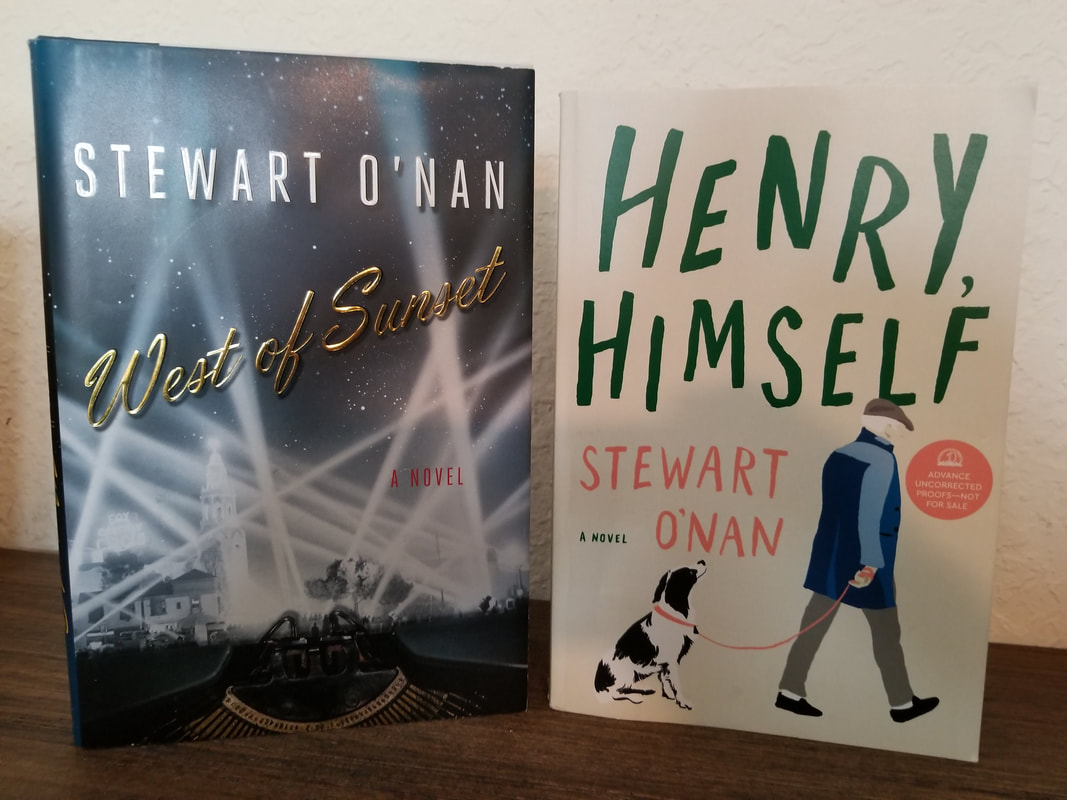
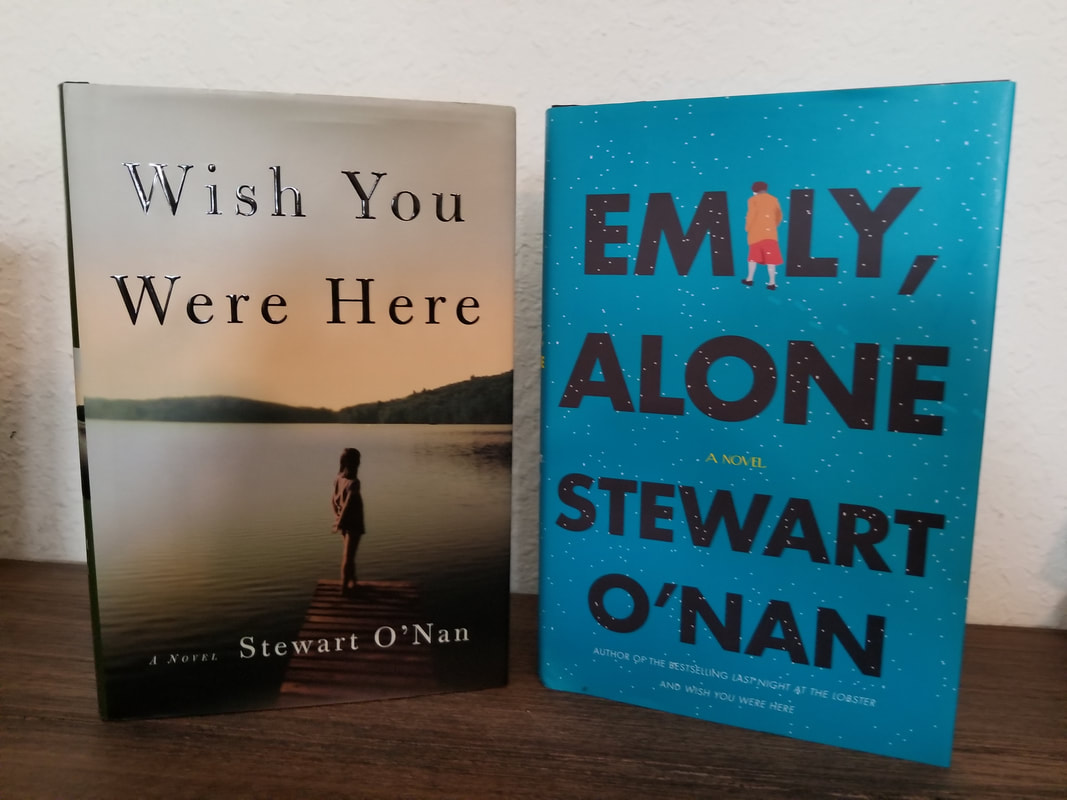
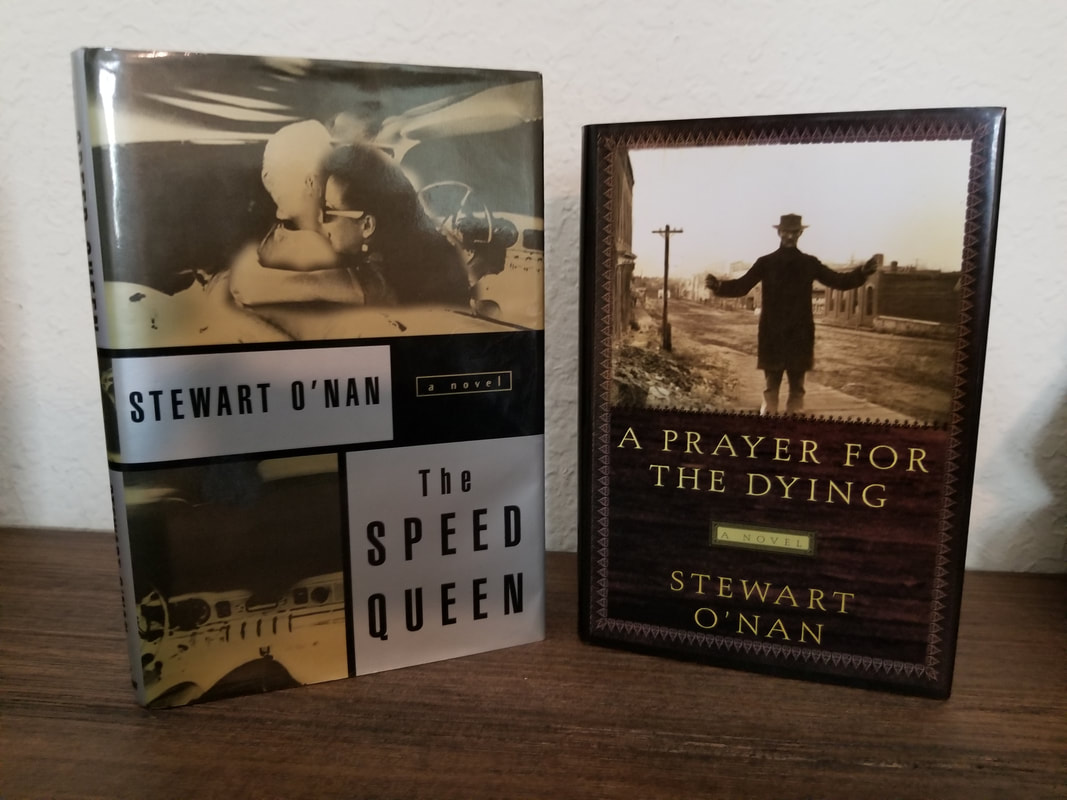
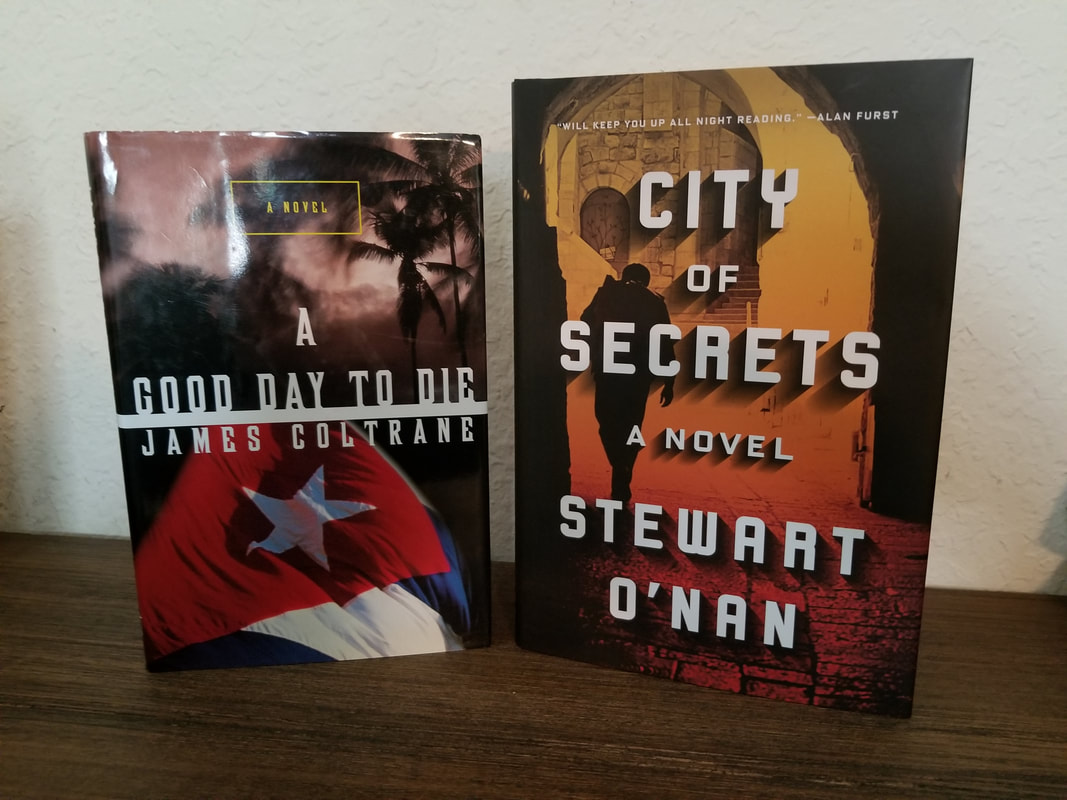
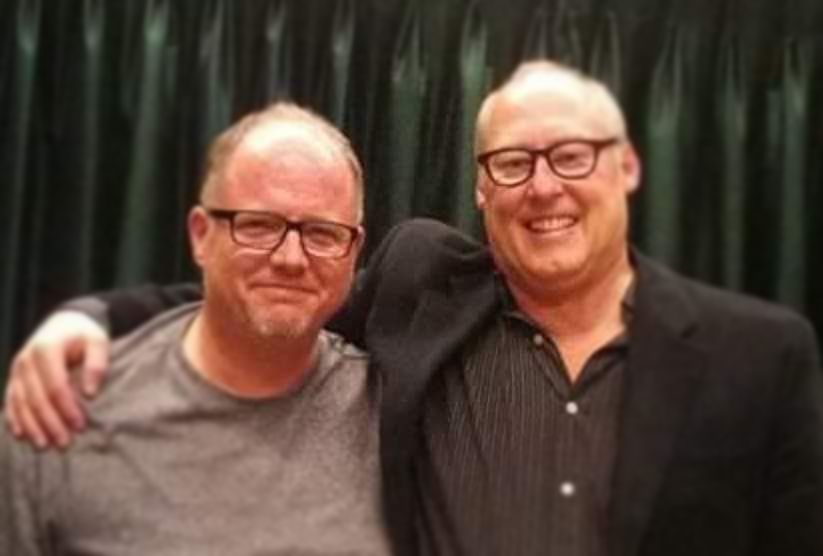
 RSS Feed
RSS Feed